An early draft of this review was originally published on November 12, 2023,
at Give Me Some Light on Substack, months before it appeared here.
Subscribe, and you’ll read many of these reviews while the films are still breaking news!
“You might try The Holdovers,” I heard myself saying to one of my former students who stopped me in the hallway to ask for a film recommendation. I’m not a big fan of Alexander Payne’s films. I find that his work tends to zigzag between off-putting cynicism and a sort of desperate sentimentality. But there’s a lot to enjoy in this one.
“I saw the trailer,” the student replied. “It’s about a professor, right? At a boys’ school? So, it’s like a new Dead Poets Society?”
I don’t remember what I said. (I was on my way to class, in a hurry, as usual.) If I’d had time, here’s what I would have said:
The Holdovers certainly feels like it could be taking place in the same world as Peter Weir’s classic boys’ school drama. Dead Poets was set on the campus of a Vermont school called Welton; The Holdovers is set among the traditional brick buildings of a New England boys’ school called Barton.
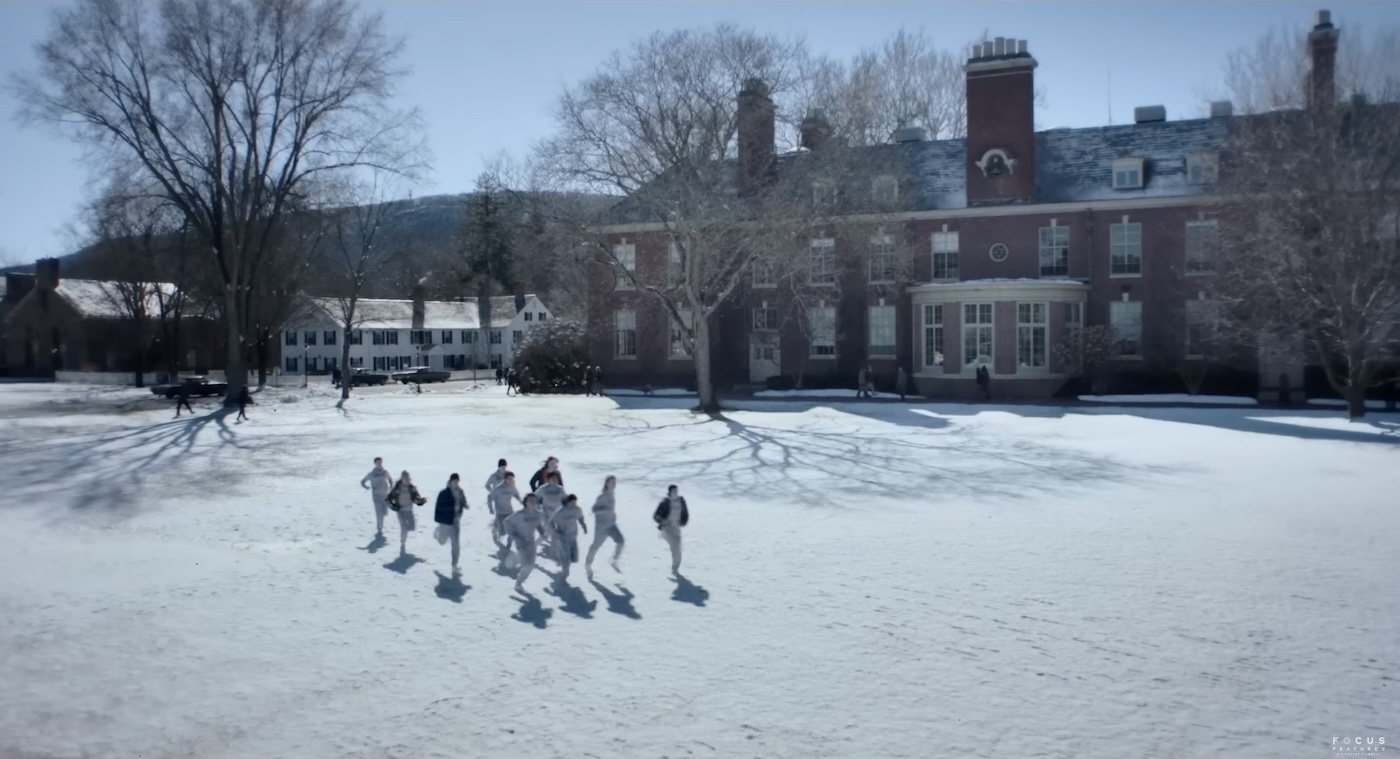
But the contrasts are more interesting than the similarities. Dead Poets took place in 1959, as Elvis was on the rise and The Beatles were about to blow up the pop culture world. Counterculture was about to challenge and change American culture’s strict norms. The Holdovers, by contrast, takes place in 1970, and the boys of Welton are fighting to avoid madness, trapped in a world prescribed by their controlling parents and an even more controlling patriarchal academy full of faculty who grumble about the death of culture.
The narratives follow arcs that are thematically complementary but hierarchically flipped: Weir’s film is about an unconventional teacher (played by the unconventional Robin Williams) who challenges tradition and champions creativity, poetry, and passion. Payne’s film is about a maddeningly legalistic classics professor (played by the wonderfully curmudgeonly Paul Giamatti) who, stubbornly rooted in tradition, butts heads and locks horns with students who would challenge him to become more creative, more spontaneous, more open-minded. The pioneering teacher of Dead Poets clashes with his institution in hopes of saving his students from cultural suffocation. The old-school prof of The Holdovers… well, he is the institution — so much so that even his colleagues might recommend he be institutional-ized. He’s the one who needs saving.
For the first hour, the story unfolds as a three-strand braid, following characters stranded on campus during the holiday break:
Giamatti’s Professor Hunham, his casual conversation as peppered with Latin phrases and literary allusions as his lectures, staggers around the corridors “babysitting” the titular “holdovers” — the boys who have nowhere else to go. It’s clear that his obnoxiousness is a front for some kind of deep hurt, but the nature of that burden won’t become evident until the trials of this purgatorial season wear him down and expose the wounds.
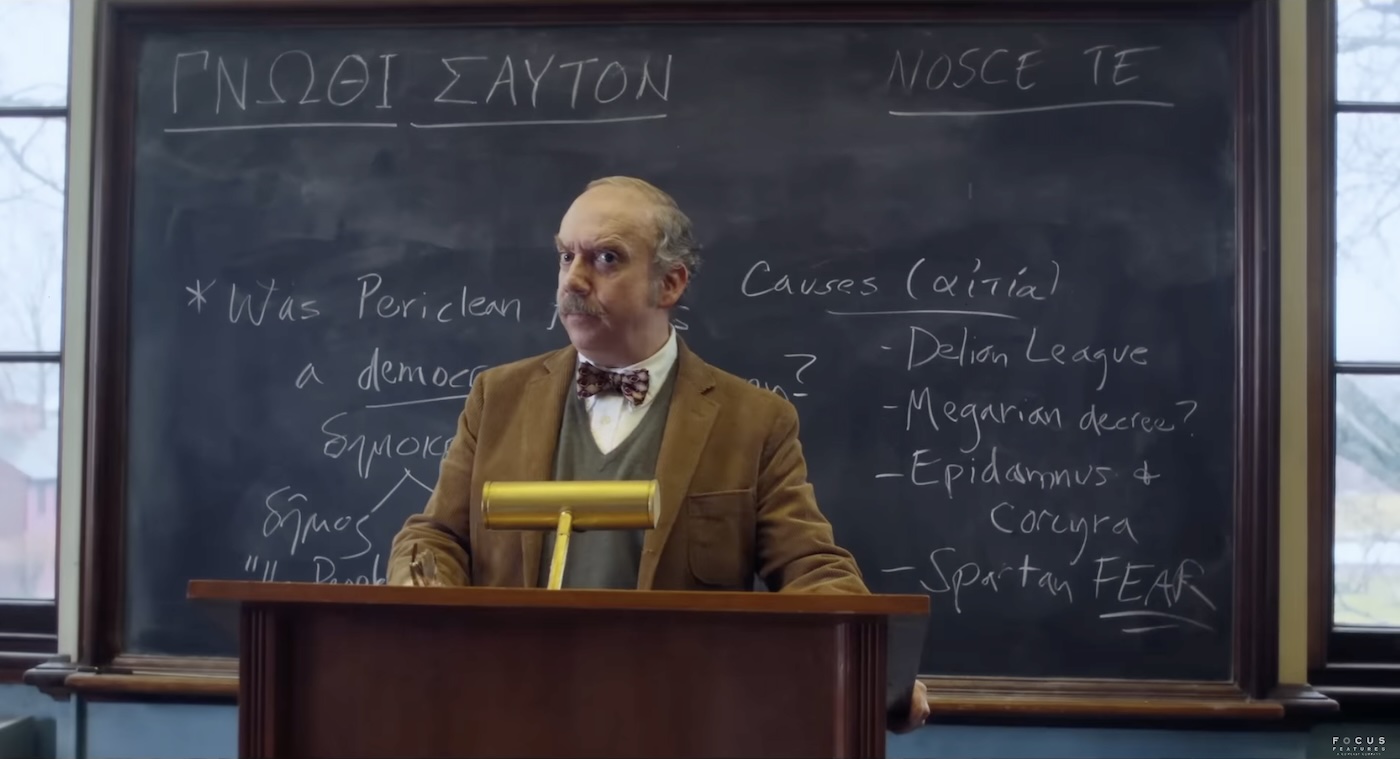
One of the stranded, a smart but obviously wounded young man named Angus (the very impressive newcomer Dominic Sessa), hates Hunham as much as the other students. But he’s quite possibly the most observant and mature of the bunch. And before long he’s testing his intolerable supervisor’s patience not so much to punish him as to figure out what makes this grouch such a monster. (It’s obvious that Angus, too, is destined to reveal dark secrets.
Meanwhile, both Hunham and Angus are fed by Mary Lamb (Da’Vine Joy Randolph), the head cook and administrator of the school cafeteria. The source of Mary’s hurt is obvious: Her young son was the only Barton boy sent to fight in Vietnam, lacking the privilege and prejudicial protection of the majority. Mary’s discernment is as sharp as any of her kitchen knives; she sees through Hunham’s bluster and she knows what Angus needs.
(I cannot deny that filmmaker Chad Hartigan has hit the nail on the head in his Letterboxd notes about this one: “Da’Vine Joy Randolph gave an electric, star-making performance in Dolemite is My Name that didn’t get her a sniff of awards attention but as soon as she plays the help in a white people movie the Academy is gonna take notice.” [Sigh.] How long, O Lord, must we sing this song?)
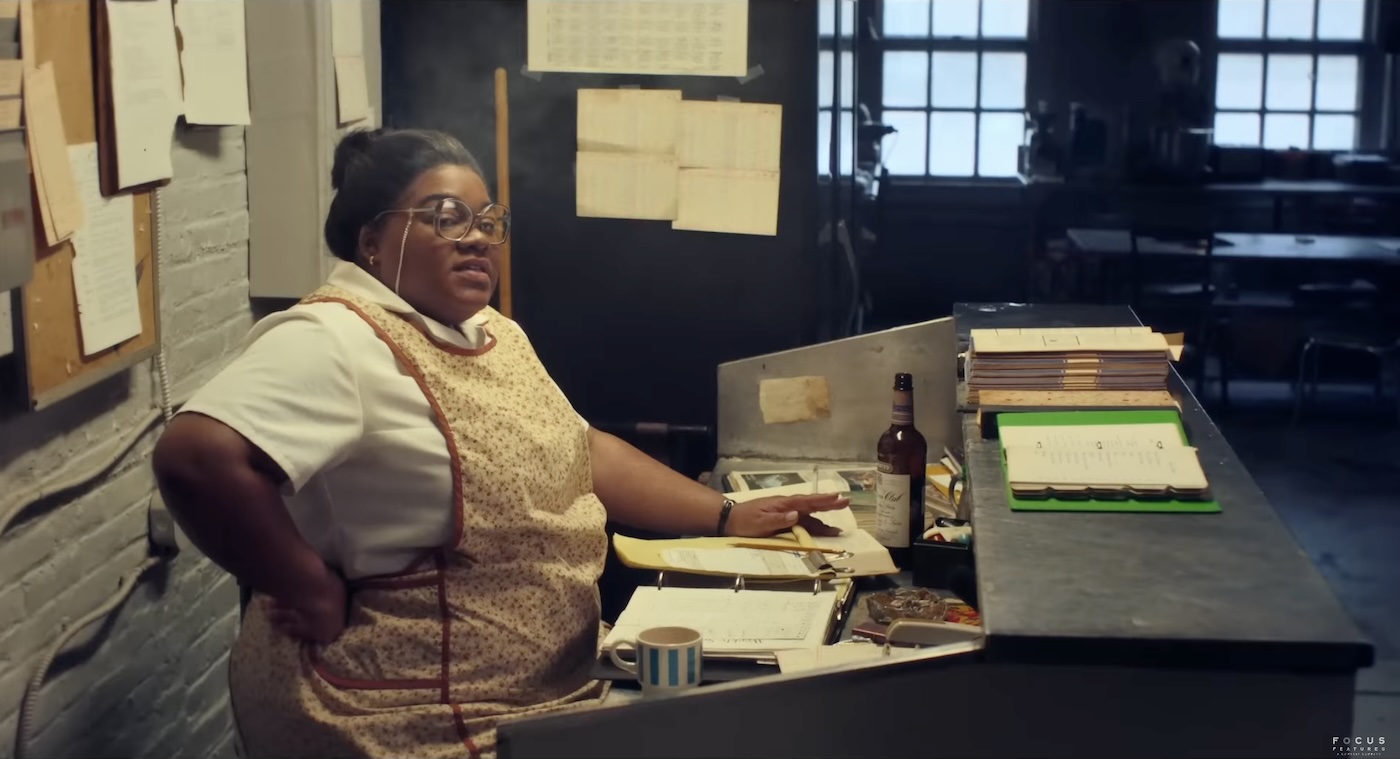
Over the course of their brief but torturous (and snowbound) detention on campus, they will have no choice but to cope with one another. What they do choose, however, is surprising: Hunham tests the electric fences that pen him in. Hunham chooses to loosen his famously unforgiving standards as he begins to care for the young man. And Mary will give her grief something to do: She’ll provoke Hunham to emerge from his shell and start discovering the world through the frame of the television. What’s more—she’ll support Angus in pursuing what he really needs. Their conversations and collisions will lead them on episodic adventures: to a hospital emergency room, to a bowling alley, to a Christmas party, and beyond.
The farther they go from their campus routines, the more they learn about each other’s secrets, and, well… the more the movie begins to test our patience with a sequence of shamelessly tearjerking scenes that feel less inclined toward literary integrity and more inclined towards easy crowd-pleasing. It’s bound to be the kind of movie that earns a bunch of Oscar nominations but then quickly becomes just another title on Payne’s hit-and-miss IMDB record.
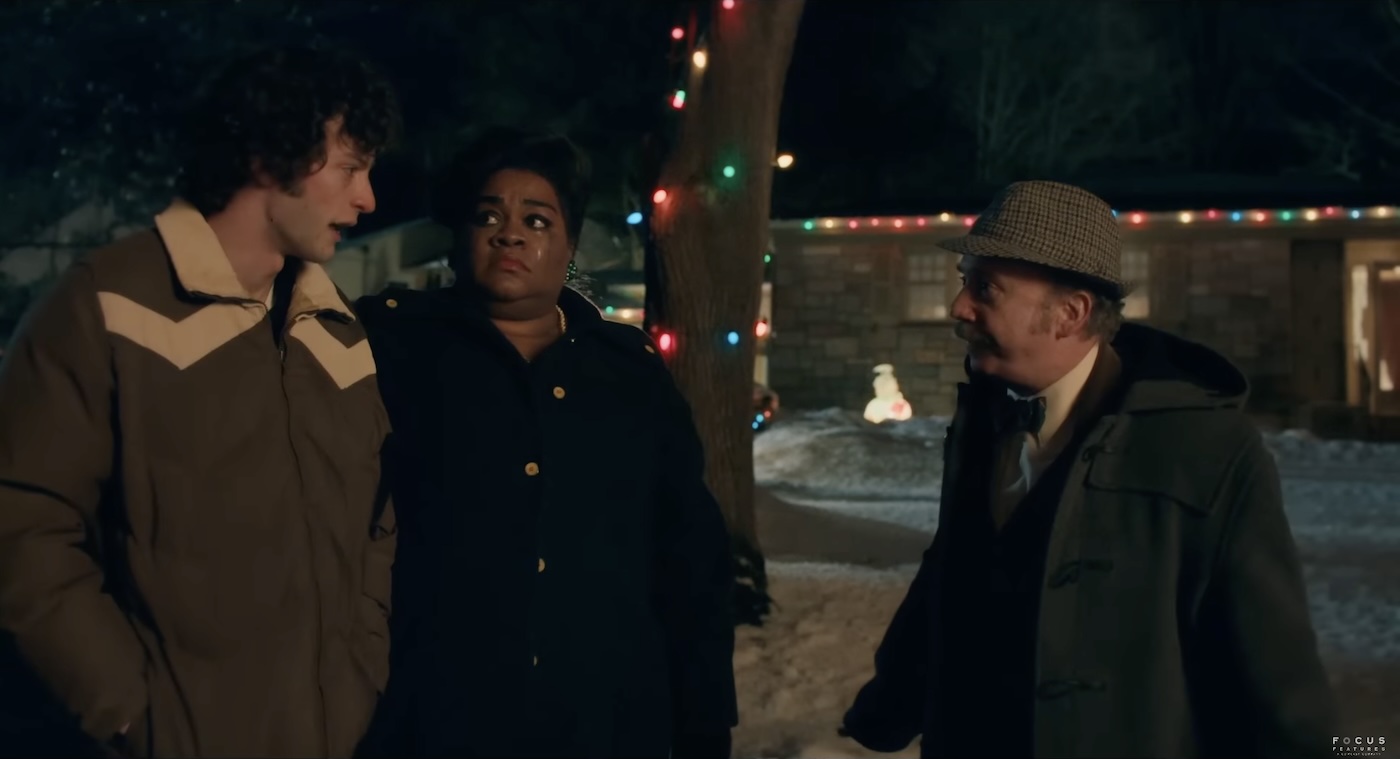
Yes, unfortunately, The Holdovers really lives up to its name. It keeps us at least 15 minutes too long — I might go so far as to say 30 — and I counted at least three moments where I might have faded the film out, subtly and quietly. But Payne keeps prodding it further, as if he’s never quite satisfied with any of these understated moments but wants to go for the Oscar-moment jugular, concocting some kind of confrontation that will push all the right buttons.
And that’s a shame, because I enjoy the world he’s crafted here. It’s a film critic’s responsibility to recognize this aesthetic as an homage to 1970s Hal Ashby classics, right down to the folk-song interstitial flourishes. (Damien Jurado is a surprisingly effective stand-in for Cat Stevens — so much so that we didn’t really need an actual Cat Stevens number, but we get that anyway.)
But Ashby films always remain rebellious enough, earnest enough in their anti-establishment impulses, to avoid ever surrendering to corporate influence. And Payne’s film feels anxious about achieving heavy buzz, and so it ends up reminding me even more of early ’90s Oscar bait like Scent of a Woman, scenarios that build toward a character taking an heroically moral stand in a moment of extreme pressure, something to make us cheer and cry.
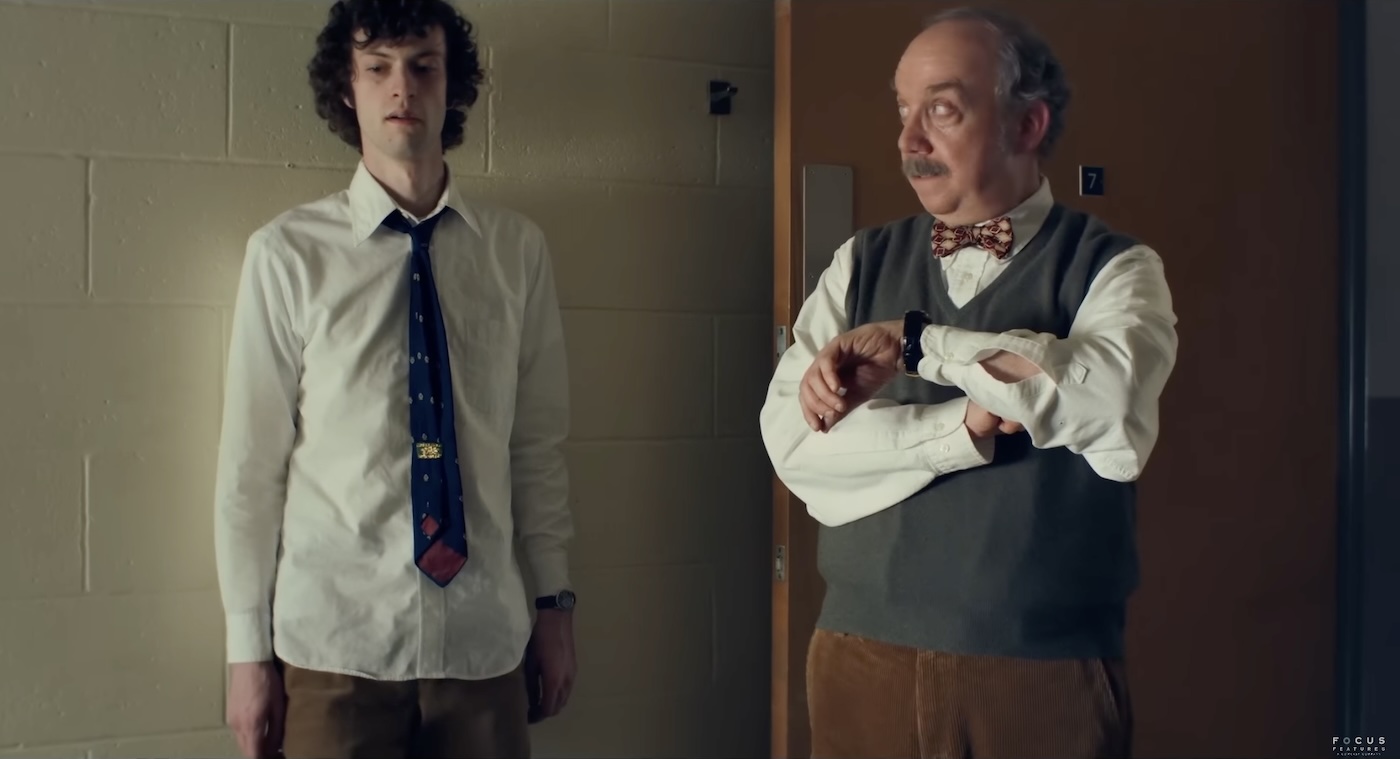
Come to think of it, Dead Poets does this too, but it does so in a way that leaves us uncertain about the consequences. For all we know, several of those boys will get kicked out of school. And Robin Williams’ Mr. Keating might get hit with lawsuits. By contrast, The Holdovers ends a little too neatly for me,
Sideways remains the only Alexander Payne film where the tension between cynicism and sentimentality has mostly worked for me (and even that movie has a scene that I count a jarring, ugly misstep into cruel caricature). This movie errs in the other direction. It never feels dangerous; instead, it feels a little too sentimental.
But I’m inclined to say this one is still worth seeing for its playful homage to a very specific slice of cinema history, for its three lead performances, and for a few very good scenes that come before those last, long 30 minutes.